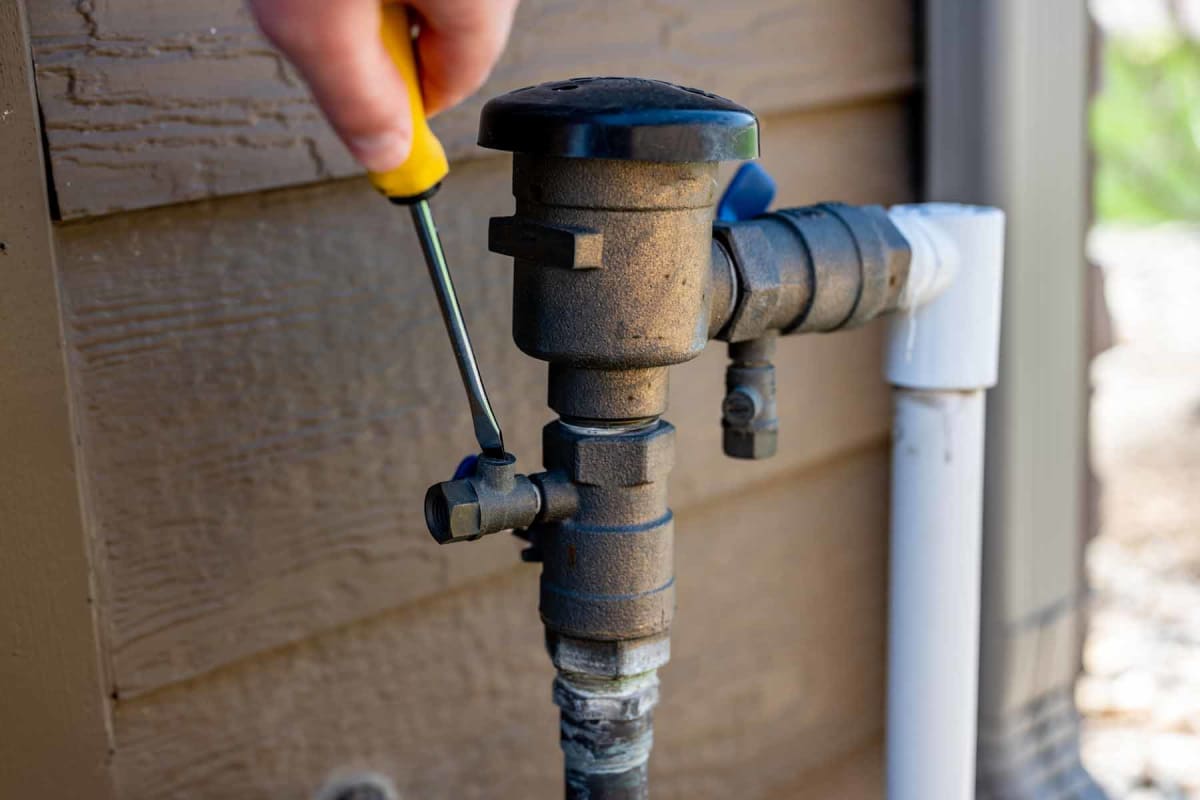
How much does backflow testing cost?
How much does backflow testing cost?
$30 – $300 average cost per device
Average cost of backflow testing
Backflow testing costs $30 to $300 per device, depending on the location and whether the test finds any issues. Backflow preventers require testing annually to make sure they’re working properly and your water isn’t contaminated. Most residential backflow preventer systems use one device. Commercial systems use 2 to 3.

| National Average Cost | $165 |
| Minimum Cost | $25 |
| Maximum Cost | $350 |
| Average Range | $30 to $300 |
Backflow preventers are devices that protect potable water systems from contamination by preventing reverse flow.
Many cities mandate the installation and annual testing of these devices for homes with an irrigation system, septic system, or inground pool.
Annual backflow testing verifies the proper functioning of these valves, ensuring ongoing water safety.
Backflow preventer testing cost factors
Several factors can influence the total cost of testing a backflow preventer:
Labor costs: Professional plumbers typically charge between $75 and $150 per hour. A handyperson or general plumber may charge less, but you should make sure the professional you choose has experience testing backflow preventers.
City fee: Your city may charge a fee for submitting a report during the test. This fee should be included in the total price.
Replacement: A new backflow preventer costs $200 to $1,000 per device with installation, depending on the type and size. If you need a new unit, it will increase your final cost.
Travel: Some professionals charge a modest fee to cover travel costs if you live in a remote area.
Cleaning charges: If they have to clean up any flood water or mud, the service may cost more.
Repairs: If the plumbing needs repairs, you’ll end up paying more for the repairs as well as retesting the system afterwards. Water line repair costs $400 to $1,500 on average. Sprinkler system repair costs $100 to $400.
Testing process
Professionals start testing backflow preventers by checking the unit’s serial number and inspecting the shut-off handles. Then they look for defects or damage and use special equipment to test the device. This ensures everything is working properly, including:
The water line and valve were installed properly.
The water flows only one way.
The backflow device doesn’t have any corrosion or leaks.
The system has optimal water pressure.
After testing the system, they create a detailed report and then submit it to your city or local authorities.
Backflow testing FAQs
What is backflow testing?
Backflow testing evaluates your backflow preventer. Professionals check water pressure levels to make sure contaminated water doesn’t get into your water line. A broken or faulty preventer can let wastewater get into your clean drinking water.
Why is backflow testing required?
Backflow testing is required because a malfunctioning backflow detection system can be extremely dangerous. Drinking unsanitary water or bathing in it can cause many different health issues, so it’s vital to evaluate your system every year.
You may also want to check your system, even before your annual test, if you notice any of the following:
Cloudy or discolored water
Irregular water pressure
Slow drainage
How long does backflow testing take?
Backflow testing normally takes about 20 to 30 minutes for smaller residential systems. Large commercial systems with multiple preventer devices take longer.

Getting estimates from backflow testers
Follow these tips to ensure you get accurate estimates from plumbers or backflow services near you:
Contact several companies for estimates, comparing costs and services.
Look at reviews on HomeGuide and Google to get an accurate picture of their work.
Ask about their experience with backflow preventers. A qualified plumber should be able to give references or examples of similar work.
Ask whether they charge a flat rate or an hourly fee. Ask about any additional costs, such as service fees or material charges.
Questions to ask your plumber about backflow testing
Ask the service provider these important questions before hiring them:
Are you licensed and insured?
How much experience do you have testing backflow preventers?
What is the total cost? Does that include parts, labor, and city fees?
Can you give me any references from previous clients?
How long will the testing take?
Will you handle any necessary repairs?
Will you write the report and deliver it to the city?
Do you charge a flat rate or an hourly fee?
What’s your policy for unexpected issues during the job?